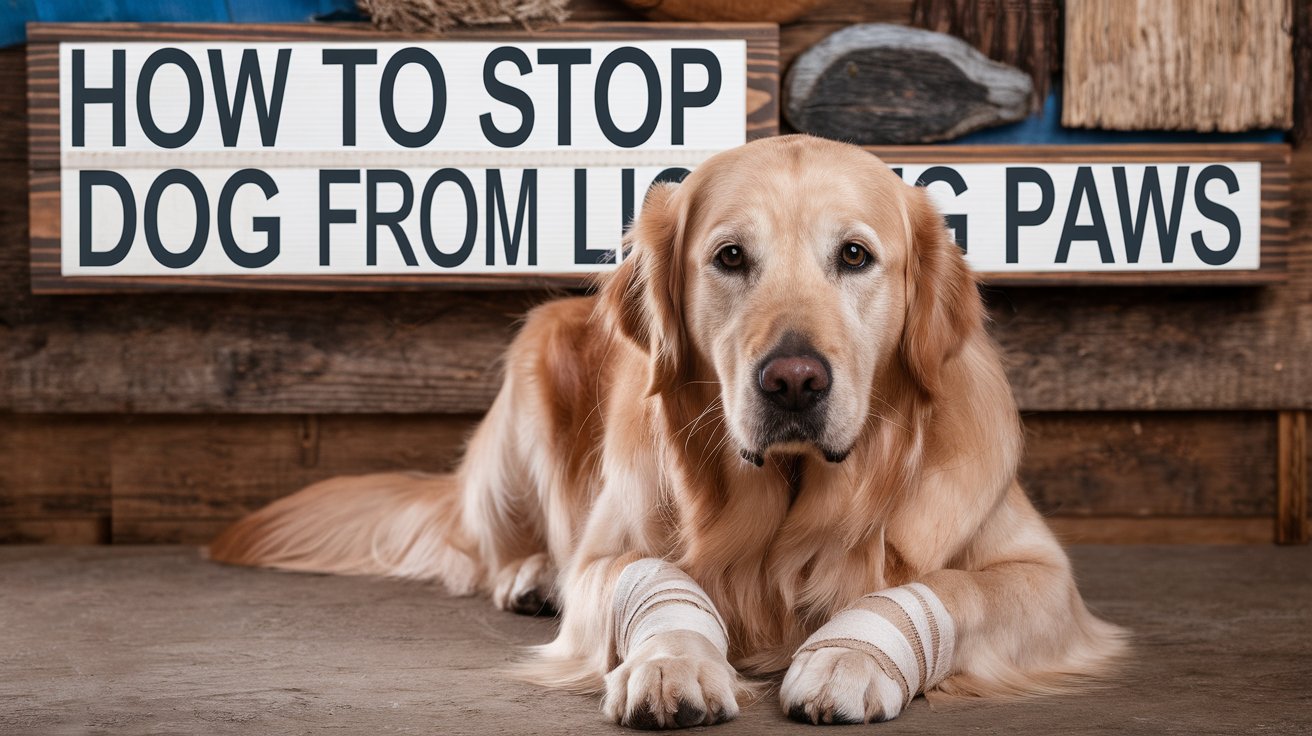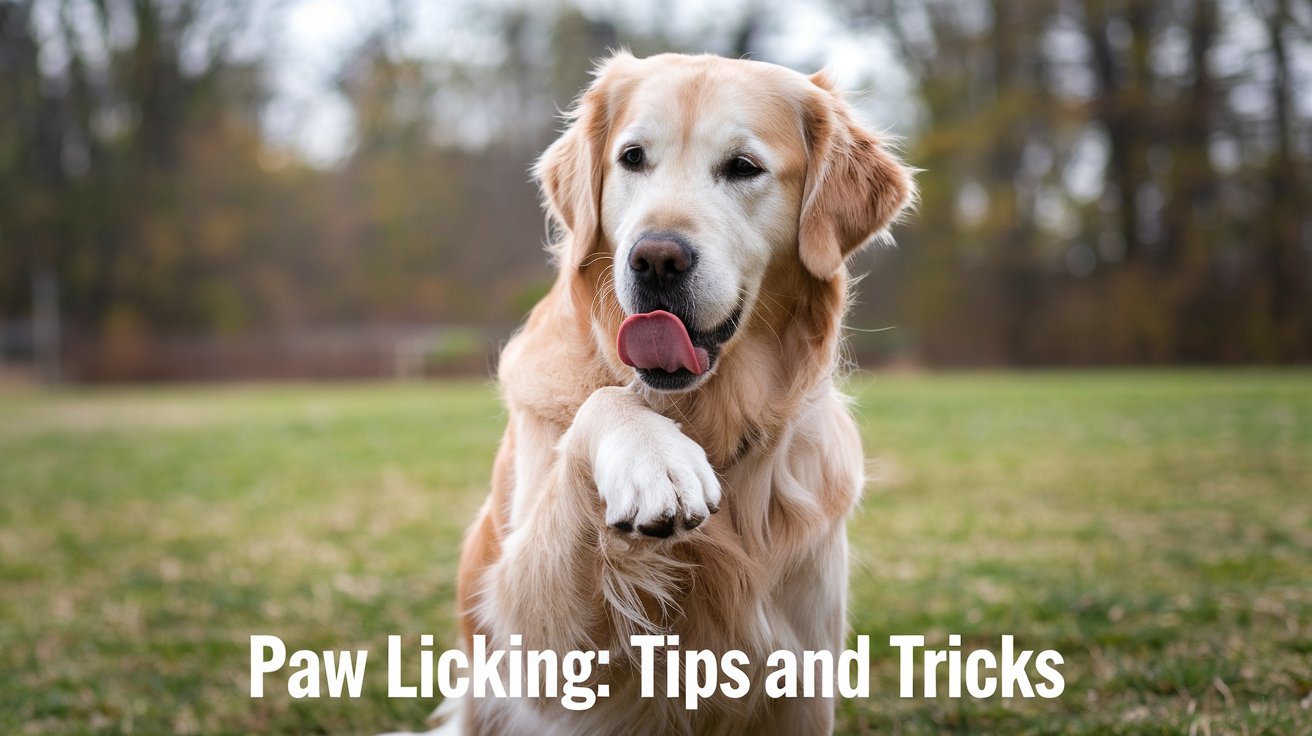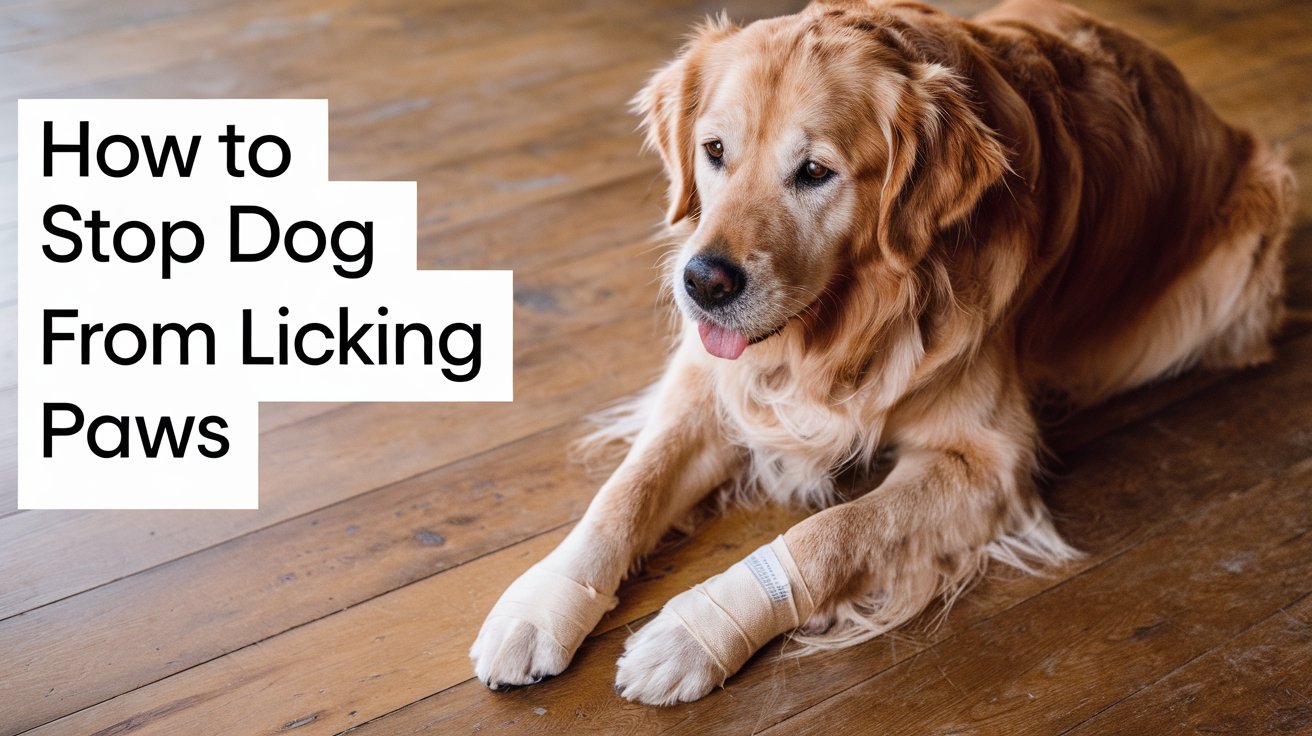
How to Stop Dog from Licking Paws: Effective Home Remedies
Dogs licking their paws can be a common, concerning habit for pet owners. While occasional licking is normal, excessive paw licking might indicate underlying issues like allergies, irritation, or anxiety. Fortunately, you can try several natural home remedies to help curb this behavior and promote healthier paws.
Why is My Dog Licking Its Paws?
Before diving into remedies, it’s crucial to understand why your dog might be licking their paws. Common causes include:
- Allergies: Environmental allergens like pollen, mold, and grass can cause itching and irritation.
- Dry Skin: Cold weather or dehydration can dry out a dog’s paws, leading to discomfort.
- Infections: Bacterial or fungal infections may cause a dog to lick excessively.
- Anxiety or Stress: Just like humans bite their nails, dogs may lick their paws as a soothing behavior.
- Injuries: A small cut, splinter, or burn might trigger your dog’s licking response.
Understanding the root cause will help you apply the right remedy for your dog.
How to Stop Dog From Licking Paws: Natural Home Remedies
Apple Cider Vinegar Soak
Apple cider vinegar (ACV) is a versatile natural remedy with antifungal and antibacterial properties. ACV can provide relief if your dog’s paw licking is due to an infection or irritation.
- How to use:
- Caution: Avoid using ACV on open wounds or raw skin, as it can sting.
Coconut Oil Massage
Coconut oil is well-known for its moisturizing and healing properties. If your dog has dry or irritated paws, massaging them with coconut oil can soothe the area and reduce licking.
- How to use: Gently rub a small amount of coconut oil on your dog’s paws, focusing on the pads and in-between the toes. You can do this after walks or as needed. Coconut oil is safe for dogs, so don’t worry if they lick some off.
- Bonus Tip: You can add a teaspoon of coconut oil to your dog’s food to improve skin and coat health from the inside.
Chamomile Tea Soak
Chamomile has anti-inflammatory and soothing properties, making it perfect for irritated or inflamed paws. A chamomile soak can calm the itchiness and discomfort that leads to paw licking.
- How to use: Brew a strong batch of chamomile tea, let it cool, and then soak your dog’s paws for 5-10 minutes. Chamomile is non-toxic, so it’s safe if your dog licks any residue off their paws afterward.
Aloe Vera Gel
Aloe vera is widely used for its cooling and healing effects on skin irritations. It can be an excellent remedy for dogs that lick their paws due to itching or allergies.
- How to use: Apply pure aloe vera gel (avoid products with added chemicals) directly to your dog’s paws. It will soothe the itching and provide relief from dryness. Use as needed, especially after outdoor activities.
Epsom Salt Soak
Epsom salt baths can help relieve inflammation and soreness in your dog’s paws. This remedy is especially useful if your dog is licking due to minor injuries or swelling.
- How to use: Dissolve a few tablespoons of Epsom salt in warm water and soak your dog’s paws for 10 minutes. Do this 2-3 times a week to see improvement.

Preventing Excessive Paw Licking: Tips and Tricks
While home remedies can help alleviate current issues, it’s essential to address underlying causes to prevent future paw licking. Here are some preventative tips:
Keep Your Dog’s Paws Clean
Regularly washing your dog’s paws after walks, especially during allergy seasons, can remove allergens like pollen and dust. A gentle rinse with water or using paw wipes can prevent irritants from causing itching.
Moisturize the Paws
Dry, cracked paws are often a result of exposure to harsh conditions like cold weather or rough terrain. Regularly applying paw balm or a natural moisturizer like coconut oil can help keep your dog’s paw pads soft and less prone to licking.
Dietary Adjustments
Address Anxiety or Stress
If you suspect that your dog’s paw licking is due to anxiety, consider introducing calming remedies such as lavender essential oil (diffused, not ingested), calming dog treats, or increasing mental stimulation through interactive toys.

FAQs
What can I put on my dog’s paws to stop licking?
You can use natural remedies like coconut oil, chamomile tea, or aloe vera gel to soothe irritated paws and discourage licking.
Why does my dog lick its paws excessively?
Excessive licking can be caused by allergies, dry skin, infections, anxiety, or injuries.
Is apple cider vinegar safe for my dog’s paws?
Yes, diluted apple cider vinegar is safe for your dog’s paws and can help combat bacterial or fungal infections.
Can paw licking be a sign of a health problem?
Yes, excessive paw licking may indicate underlying issues such as allergies, infections, or anxiety. If the behavior persists, consult a vet for further evaluation.
How do I know if my dog’s paw licking is due to allergies?
If your dog licks its paws mainly after going outside or during certain seasons, environmental allergies could be the cause. Other signs include scratching, red skin, or ear infections.
What if home remedies don’t work?
If home remedies fail to stop the licking or if your dog’s condition worsens, consult your vet to rule out serious issues like infections, autoimmune diseases, or severe allergies.
Conclusion
Paw licking is a common behavior in dogs, but when it becomes excessive, it’s often a sign that something is wrong. Using natural home remedies like apple cider vinegar, coconut oil, and chamomile tea can offer your dog relief while addressing the root cause of the irritation. However, if the licking persists or worsens, it’s essential to consult with your vet for a proper diagnosis and treatment plan. By taking preventive measures and applying these simple home remedies, you can ensure your dog’s paws stay healthy and comfortable.

I’m Haseem Ali, a passionate writer focused on dog diet, health, training, lifestyle, and care. I’m dedicated to sharing expert advice and practical tips to help fellow dog owners provide the best for their furry friends. When I’m not writing, I enjoy spending time with my own dogs and exploring new pet-friendly activities.
